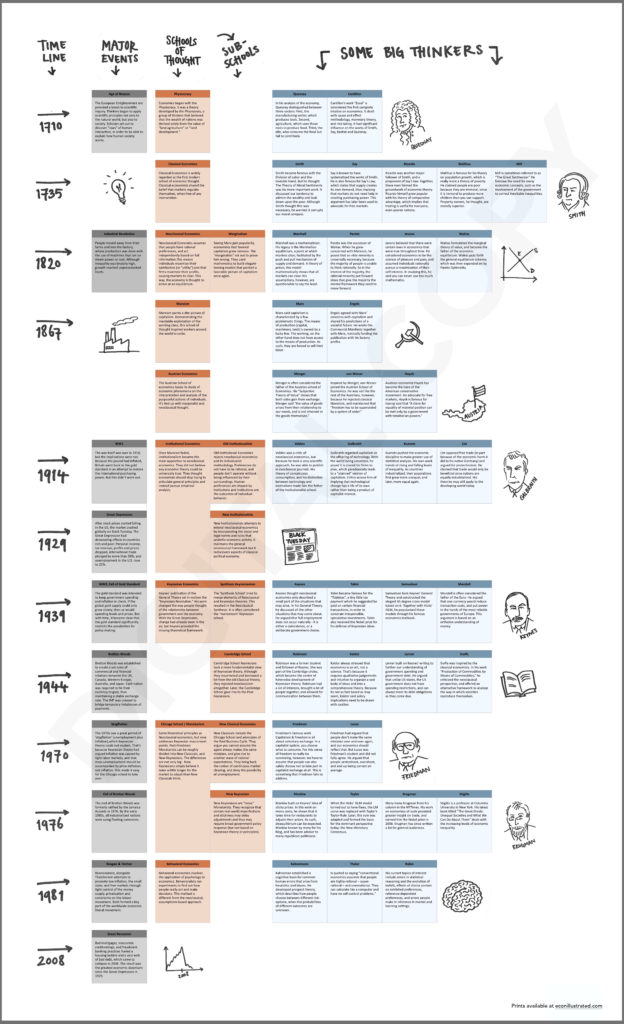Do you keep getting confused about the different schools of thought in economics? Do you always forget what Walras was about, and when Marx was around?
This timeline has your back. It provides an overview of historic events, schools of thought, and the people involved.
About the author: Heske van Doornen holds an MSc in Economic Theory and Policy from the Levy Economics Institute and a BA in Economics from Bard College.
Sources: The Economics Book, Economie!, www.preceden.com, www.econlib.org, www.whistlinginthewind.org, www.hetwebsite.net


No mention of Henry George 1869, the largest selling economics author of the 19th C???
Also no mention of the Limits to Growth study, the ecological economists, the biophysical economists, and the Centre for the Advancement of the Steady State Economy?
…..Ofcourse, there is no mention of Social Credit or Clifford Douglas on the above. However, the “chart” is quite good….Incidently, my project may be of interest . See http://www.p2pfoundation.net/Transfinancial_Economics
The single greatest economic achievement of the past millenia is the creation of the USA economy. The state papers of Treasury Secretary Alexander Hamilton are the foundational documents of that achievement. Hamilton directly repudiated Smith and British economic thinking. Henry Carey was the leading “American School” economist after Hamilton. Hamilton’s and Carey’s economics were brought to Germany by Friedrich List, and guided that country’s industrial development. Hamilton’s and Carey’s economics were brought to Japan by E. Peshine Smith, and guided that country’s industrial development. Which of the “thinkers” mentioned in the large chart have ever created a national economy? So this chart merely serves to perpetuate the formal British school economics which has done nothing to actually build nations and improve peoples’ lives.
Title should be edited to include “Modern Economics.” Otherwise there are major gaps going back to Aristotle who laid important foundations to economic thought especially as it relates to an exchange of unlike equals.
This is wonderful!
I understand completely all complaints about missing certain ideas and great thinkers, but this is just a chart, not an encyclopaedia. A line must be drawn.
Quite interesting how there is no mention of any ideas post 2008. Certainly Piketty could fit there (no matter how mistaken he is in my opinion)